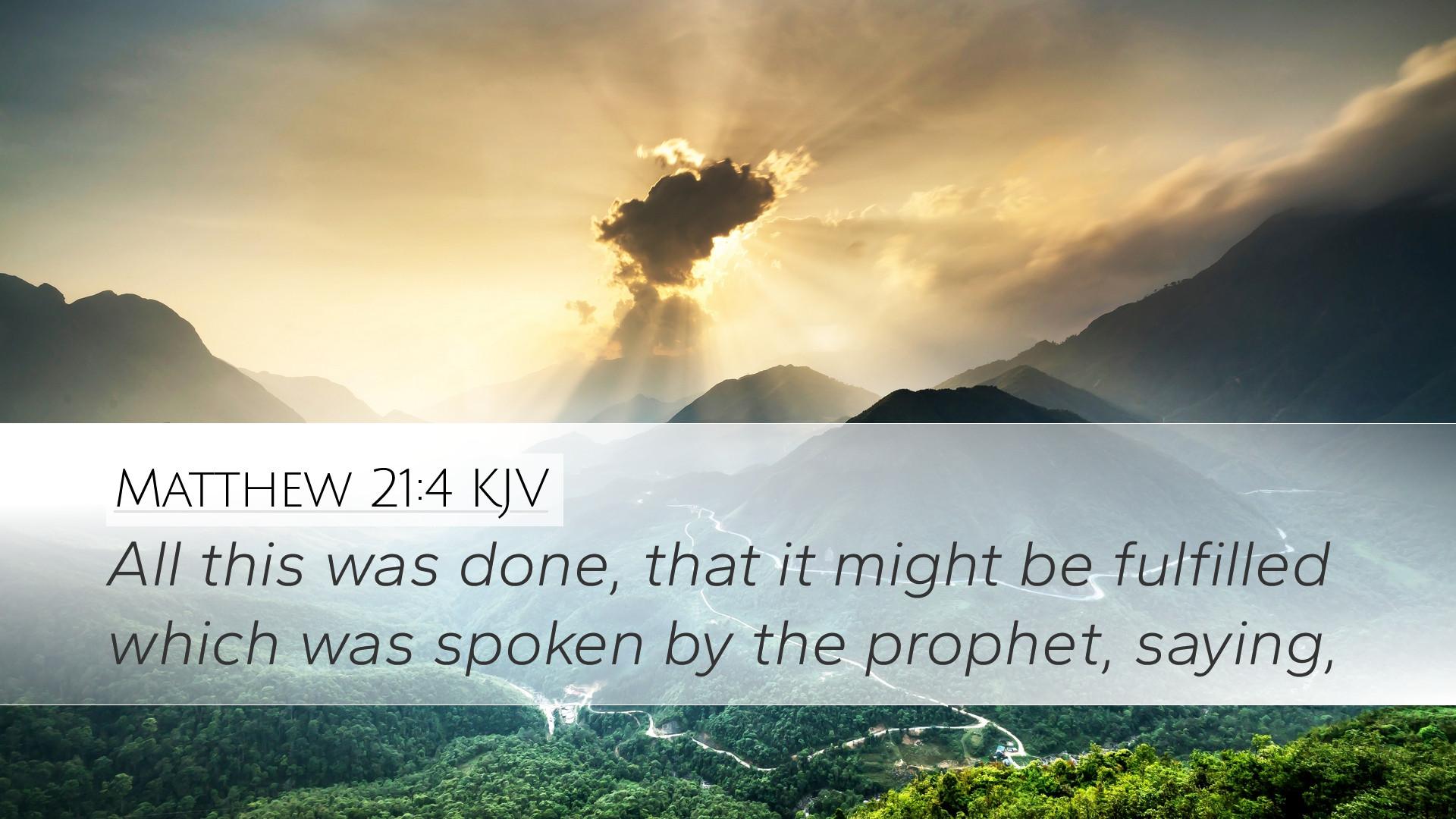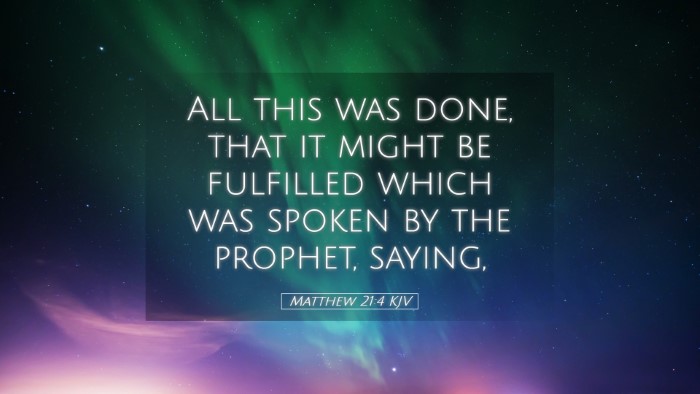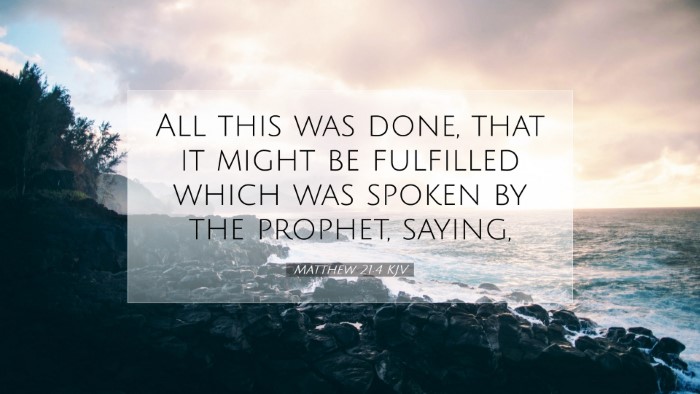Commentary on Matthew 21:4
Verse Text: "This took place to fulfill what was spoken through the prophet:"
Contextual Background
Matthew 21:4 is situated in a pivotal moment in the Gospel narrative, depicting Jesus’ triumphal entry into Jerusalem. This event holds significant theological implications as it marks the beginning of the final week leading to the Passion. The verse further indicates the fulfillment of prophecy, a recurrent theme in Matthew, emphasizing Jesus as the Messiah.
Prophetic Fulfillment
Matthew underscores that the actions of Jesus during his entry into Jerusalem fulfill the prophecies of the Old Testament. Specifically, he alludes to Zechariah 9:9, which speaks of a king coming to Jerusalem “gentle and riding on a donkey.” This detail serves to demonstrate Jesus’ identity as the Messianic King, yet the method of His entry reflects a servant-hearted approach rather than a militaristic display.
Insights from Public Domain Commentaries
Matthew Henry's Commentary
Matthew Henry notes the significance of this event as a demonstration of Jesus' authority and the fulfillment of divine prophecy. He emphasizes that the act of riding on a donkey symbolizes peace, contrasting with the image of a conquering king on horseback. Henry also points out the juxtaposition of the crowd's jubilant welcome with the subsequent rejection that Jesus would face.
Albert Barnes' Notes on the Bible
Albert Barnes provides an analytical view of the fulfillment aspect in this verse. He recognizes the prophetic nature of Jesus’ actions, arguing that the disciples’ obedience in obtaining the donkey is a demonstration of faith. Barnes elaborates on the significance of this event within the framework of Jesus’ Messianic mission, reinforcing that Jesus perfectly aligns with the prophecies of the Old Testament.
Adam Clarke's Commentary
Clarke offers a deeper theological insight, asserting that the fulfillment of prophecy through Jesus' actions reveals God’s sovereignty in orchestrating events leading to salvation. He highlights that this act, though humble, signifies the establishment of God’s kingdom on earth. Clarke also discusses the implications of Jesus’ choice of a donkey, symbolizing humility and the peaceful nature of His reign.
Theological Implications
Matthew 21:4 serves as a profound reminder of Jesus’ dual nature as both king and servant. The fulfillment of prophecy reveals God’s plan unfolding through history, with Jesus at its center. This duality invites theological reflection on the nature of God's kingdom, the expectation of the Messiah, and the genuine nature of worship in recognizing Christ’s lordship.
Application for Pastors and Scholars
For pastors, this verse offers a rich opportunity for preaching on the themes of hope and humility in Jesus' entry into Jerusalem. It challenges congregants to reflect on their understanding of kingship and servanthood in their own lives.
The scholarly examination of this text invites further study into the fulfillment of Old Testament prophecies in the New Testament, encouraging engagement with both historical context and theological significance.
Conclusion
Matthew 21:4 encapsulates the essence of Jesus’ purpose and mission through prophetic fulfillment. As we reflect on this verse, we acknowledge the multifaceted nature of Christ’s kingship and are reminded of the hope and humility that characterizes His reign. The insights from Matthew Henry, Albert Barnes, and Adam Clarke enrich our understanding, prompting deeper engagement with the text and its implications for faith and practice.


